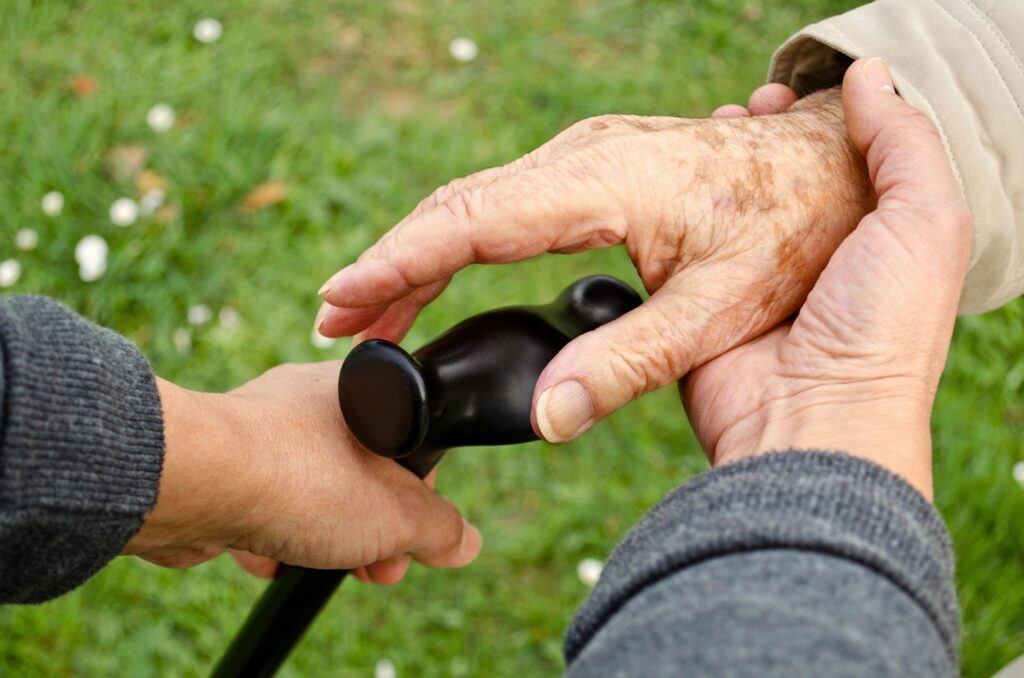When a person is discharged from the hospital after surgery or a serious illness, recovery often doesn’t end there. Many people need additional care and support to regain their strength and independence. This is where post-acute care comes in. Post-acute care bridges the gap between hospital treatment and returning to normal life, offering crucial support for patients in their recovery journey.
At Shining Light Hospice, we are committed to helping patients navigate this important phase. In this article, we’ll explain what post-acute care is, why it’s essential, and the different types of services that help ensure a smooth transition from hospital to home.
Introduction to Post-Acute Care
Post-acute care refers to the medical and therapeutic services patients receive after a hospital stay. It focuses on helping patients heal and regain independence after surgery, injury, or illness. This type of care can take place in different settings depending on a patient’s needs, such as in skilled nursing facilities, at home, or in specialized rehabilitation centers.
The primary goal of post-acute care is to ensure that patients recover safely and effectively. Instead of the high-intensity treatments provided in hospitals, post-acute care focuses on rehabilitation, pain management, and helping patients return to their normal activities.

Types of Post-Acute Care Services
There are several different kinds of post-acute care services, each designed to meet the specific needs of patients. Let’s explore the most common options:
1. Skilled Nursing Facilities (SNFs)
Skilled nursing facilities provide 24-hour medical care for patients who no longer need to be in a hospital but still require ongoing medical attention. Patients in these facilities receive care from nurses, therapists, and other medical professionals who help them recover from surgery or illness.
These facilities are ideal for patients who need physical therapy, wound care, or assistance with daily activities as they recover.
2. Inpatient Rehabilitation Facilities (IRFs)
Inpatient rehabilitation facilities offer intensive therapy and rehabilitation services. Patients stay in these facilities for a short period to regain strength, mobility, and other physical functions. This type of care is especially important for those recovering from major health events like strokes, brain injuries, or serious surgeries.
The focus in IRFs is on helping patients return to their normal daily activities through physical, occupational, and speech therapy.
3. Home Health Care
For patients who can manage their recovery at home but still need some medical support, home health care is an excellent option. Skilled nurses and therapists visit the patient’s home to provide treatment, monitor their progress, and offer rehabilitation services.
Home health care allows patients to recover in the comfort of their own home, surrounded by family and familiar surroundings, while still receiving expert care.
4. Long-Term Acute Care Hospitals (LTACHs)
Long-term acute care hospitals are designed for patients with severe medical needs that require extended care, but who do not need the full services of a traditional hospital. Patients in LTACHs might need ongoing care for complex medical conditions, such as those requiring ventilator support or treatment for chronic wounds.
These hospitals provide specialized care for patients who require longer recovery times but still need advanced medical services.
Why Post-Acute Care is Important
Post-acute care plays a vital role in a patient’s recovery process. Here are some key reasons why it is so important:
- Improves Recovery Outcomes: Post-acute care helps patients recover more quickly and completely. The specialized services provided, such as physical therapy, help patients regain strength, mobility, and independence, leading to better overall health outcomes.
- Prevents Hospital Readmissions: One of the main goals of post-acute care is to prevent complications that might send a patient back to the hospital. With proper medical oversight and therapy, patients are less likely to suffer setbacks, which reduces the need for re-hospitalization.
- Enhances Quality of Life: Receiving the right type of care during recovery can greatly improve a patient’s quality of life. Post-acute care ensures that patients are receiving the medical attention and support they need to heal comfortably and effectively.
- Provides Specialized Care: Each patient’s recovery needs are unique, and post-acute care is tailored to meet those specific needs. From physical therapy to wound care, patients receive focused treatment that helps them recover faster.
Differences Between Acute Care and Post-Acute Care
It’s important to understand the difference between acute care and post-acute care. Acute care refers to the immediate, emergency treatment provided in hospitals for serious conditions like heart attacks, strokes, or major surgeries. The goal is to stabilize the patient and treat life-threatening conditions.
Post-acute care, on the other hand, comes after the immediate crisis has been handled. It focuses on recovery, rehabilitation, and helping patients return to their normal routines. While acute care is often life-saving, post-acute care ensures that patients heal properly and regain their independence after their hospital stay.
| Aspect | Acute Care | Post-Acute Care |
|---|---|---|
| Purpose | Stabilize and treat life-threatening conditions | Support recovery and rehabilitation |
| Duration | Short-term, usually until patient is stable | Varies; can be short or long-term |
| Setting | Hospitals, Emergency Rooms | Skilled Nursing Facilities, Rehabilitation Centers, Home Care |
| Intensity of Care | High-intensity, emergency-focused care | Moderate to low intensity, recovery-focused care |
| Patient Condition | Critical, life-threatening conditions | Recovering, stable but still in need of ongoing care |
| Types of Services | Surgery, emergency treatments, intensive monitoring | Physical therapy, wound care, rehabilitation, long-term medical support |
Who Needs Post-Acute Care?
Many different types of patients benefit from post-acute care. Common reasons for needing this type of care include:
- Recovery from surgery, such as joint replacements or heart procedures.
- Rehabilitation after a stroke or heart attack.
- Management of chronic illnesses like COPD or diabetes.
- Assistance with injuries from falls or accidents.
- Care for wounds that need ongoing medical attention.
Patients recovering from these or other serious conditions often need additional support after leaving the hospital. Post-acute care ensures they receive the attention they need to heal fully and return to their everyday lives.
Choosing the Right Post-Acute Care Option
Deciding which type of post-acute care is best depends on the patient’s condition, needs, and recovery goals. Some patients may need the constant care of a skilled nursing facility, while others might benefit from home health care where they can recover in familiar surroundings.
At Shining Light Hospice, we help patients and their families choose the right post-acute care services. We understand that every patient is different, and we work closely with healthcare providers to develop personalized care plans. Our goal is to make sure that each patient receives the best possible care for their unique situation.
The Role of Family in Post-Acute Care
Family members play an essential role in a patient’s recovery. Whether helping to choose the right care facility or providing emotional support, family involvement can make a big difference in the healing process. It’s important for families to stay informed, ask questions, and be a part of the care plan. At Shining Light Hospice, we encourage family members to be active participants in the recovery process, helping their loved ones through this crucial time.
Endnote
Post-acute care is a key part of the recovery process for many patients. At Shining Light Hospice, we are dedicated to providing the highest quality care and support to help patients regain their health and independence. Whether a patient needs skilled nursing, rehabilitation, or home health care, we are here to provide expert, compassionate care every step of the way.
Sources:
Spring Hills – What is Post-Acute Care?
This article from Spring Hills provides a clear explanation of post-acute care, focusing on the patient’s recovery process and the different types of care available.
American Medical Rehabilitation Providers Association – What is Post-Acute Care?
This resource gives a detailed breakdown of post-acute care, its importance, and the various care settings.
Family Choice Healthcare – What is Post-Acute Care?
A guide on the different types of post-acute care services, including skilled nursing, rehabilitation, and home health care.
IntelyCare – What is Post-Acute Care?
This article covers the essentials of post-acute care and how it supports recovery after hospitalization.
Definitive Healthcare – Post-Acute Care Explained
A resource explaining the role of post-acute care in the healthcare continuum and its impact on patient outcomes.
Encompass Health Blog – What is Post-Acute Care?
A comprehensive blog post that outlines the benefits of post-acute care and different rehabilitation options available.






